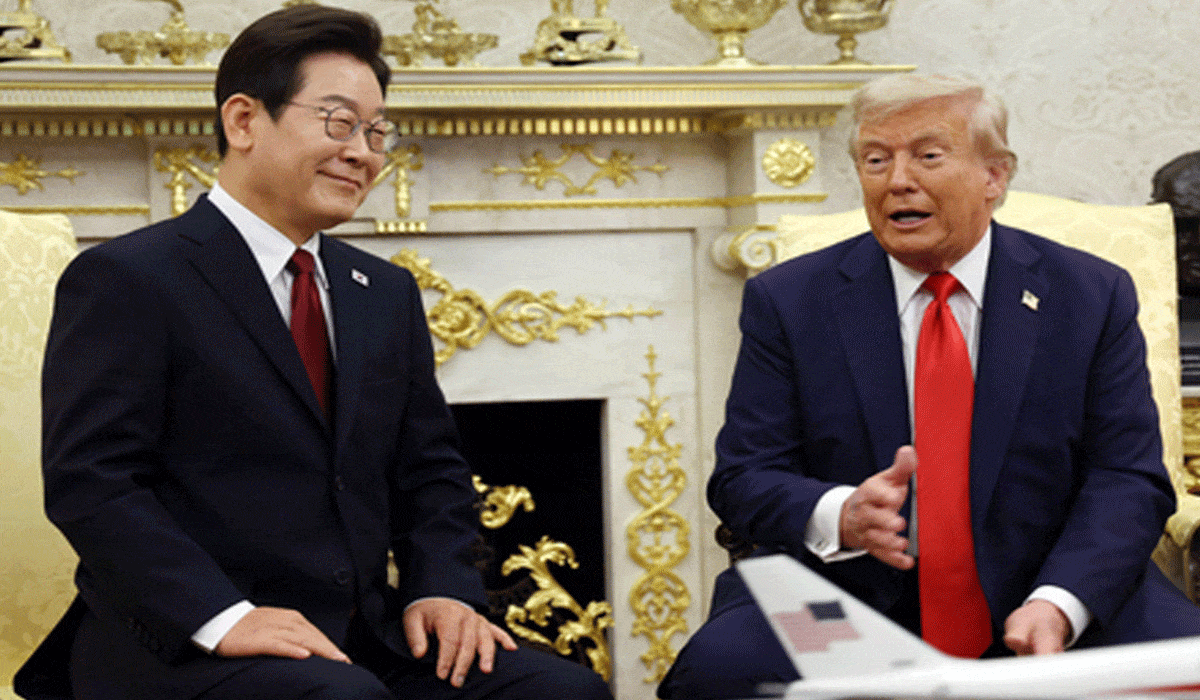South Korea, US have security deal on paper, still working on trade deal: National Security Advisor
South Korea and the United States have an agreement on paper on security and alliance issues, while negotiations to finalise a trade deal are still ongoing, National Security Advisor Wi Sung lac said on Sunday.

Seoul: South Korea and the United States have an agreement on paper on security and alliance issues, while negotiations to finalise a trade deal are still ongoing, National Security Advisor Wi Sung lac said on Sunday.
Wi made the remarks in a TV interview as Seoul and Washington are in the final stage of their negotiations on the implementation of South Korea’s USD 350 billion US investment package as agreed in a July deal, in return for the US lowering tariffs on South Korea to 15 per cent from 25 per cent.
Alongside the trade deal, the two sides are expected to unveil a separate agreement on their security commitments, outlining South Korea’s plan to increase its defence spending and how the two countries may address readjusting the role of US troops in Korea as part of what they call efforts to “modernise the alliance.”
Also Read: South Korean President Lee departs for Malaysia to attend ASEAN summit
“We have most of the paperwork ready for the security components. We are not sure if we can finalise the tariff part yet, but we are working on it,” Wi said in an interview with public broadcaster KBS.
When asked whether the final deal will be reached during this week’s Asia-Pacific Economic Cooperation (APEC) summit in Gyeongju, Wi said, “We will have to see,” Yonhap News Agency reported.
Seoul has suggested that some sticking points remain in the negotiations, including the proportion of direct investment, the timeline for delivering the investment and the method for distributing returns.”
Wi indicated that Seoul proposed increasing its defence spending — a key demand from US President Donald Trump for US allies — and that was used as leverage to persuade Washington to agree to a revision of a bilateral nuclear energy pact, known as the “123 Agreement.”
“We have consistently made our point that the current restrictions are unfair for us, given our capabilities, and we have received a positive response (from the US),” Wi said.
The agreement, last revised in 2015, bans South Korea from spent fuel reprocessing and uranium enrichment as it strictly requires US consent.
Seoul has sought to include in the security deal a revision of the pact that would give it greater flexibility in the reprocessing of spent nuclear fuel and enrichment of uranium for civilian energy use.
Regarding the upcoming talks between President Lee Jae Myung and Chinese President Xi Jinping, set for Saturday, Wi pointed out that building a “personal relationship” between the two leaders would be a priority.
“Secondly, we need to encourage China to cooperate for denuclearisation and peace and stability on the Korean Peninsula as we seek to create room for practical cooperation in such areas as the economy,” he said.
In that vein, Wi urged conservative activists in Korea to refrain from staging anti-China rallies, saying they are “rude” and “against the spirit” of inviting a foreign leader on a state visit.
Wi said Lee is most likely to have his first summit talks with new Japanese Prime Minister Sanae Takaichi in Gyeongju on Thursday.
“From what I have heard, she is considered a conservative, but many do not view her as a right-wing figure,” Wi said when asked about concerns that have arisen in Korea over Takaichi’s hawkish stance on history issues related to Japan’s 1910-45 colonial rule of Korea.
“I heard that she has a particular interest in, and recognises the importance of, the South Korea-Japan relations.”
